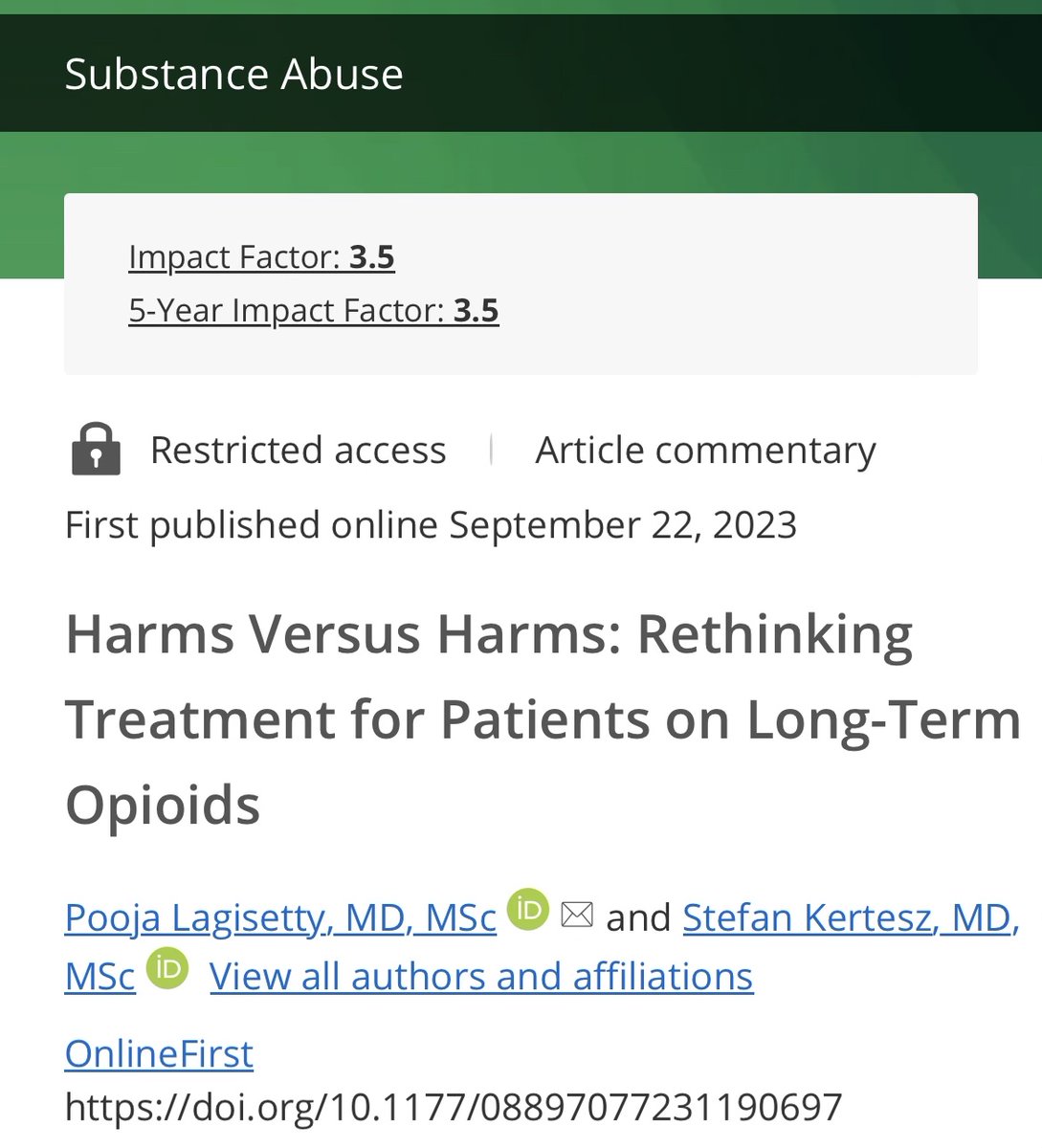1/Canadian provinces that reduced #opioid prescribing the most also had the LARGEST increases in opioid overdose mortality in the 2-year period of 2016-2018 (r=0.63, p=.05, df=8) -it's striking to see significant correlations with n=10! bmcpublichealth.biomedcentral.com/articles/10.11… 

2/The authors suggest that reductions in prescribed opioids create "supply gaps" that push the *non-medical opioid users* to riskier supplies.
However, I've become more concerned that some actual medical users (i.e. pain patients) also make that jump... like this:
However, I've become more concerned that some actual medical users (i.e. pain patients) also make that jump... like this:
3/In this Colorado case-control study, chronic opioid recipients who later developed new-onset heroin use were more likely to have had their prescription opioids stopped (38%) compared to those who didn't develop heroin use (22%) - sciencedirect.com/science/articl…
4/In that Colorado study 'prescription stoppages' were sometimes in response to concerning behaviors in patients- signifying that at least part of the time, the clinicians were responding to something that they didn't feel they could handle, or that scared them.
5/The Colorado study comes on the heels of ever more studies in which Rx opioid stoppage or taper is not followed by any improvement in patient safety, even though (in some of these studies) there are hints of "un-safety" in patients BEFORE the Rx stoppage.
6/The correlations that drove thought leaders to propose opioid taper as the focal point for safety efforts are now countered by *too many* studies finding no safety benefit to Rx opioid stoppage, under ordinary conditions of practice (example) bmj.com/content/368/bm…
7/I still assess, from the observational data, that escalating doses should be understood as risky, but not prohibited
And yes, there are situations where tapering doses is the next best step in care, provided clinician & patient are prepared to deal with messy consequences.
And yes, there are situations where tapering doses is the next best step in care, provided clinician & patient are prepared to deal with messy consequences.
8/But the continued obsession with counting opioid Rx's, which now sit below 2006 levels, has not yielded the protective benefit one would have hoped for. Time to "measure the opioid crisis differently" as per this @TEDxBirmingham talk:
• • •
Missing some Tweet in this thread? You can try to
force a refresh

















